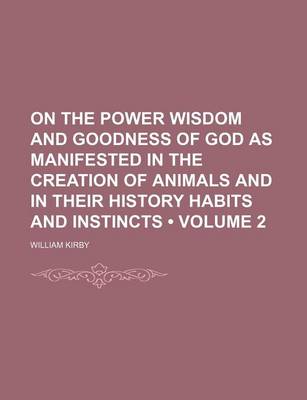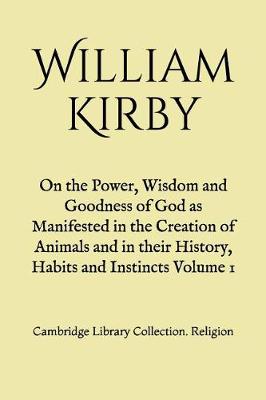Cambridge Library Collection - Religion
2 total works
This extensively illustrated two-volume treatise, published in 1835, is one of a series commissioned by the Royal Society with funds bequeathed by the Earl of Bridgewater. William Kirby (1759-1850), Cambridge graduate, country parson and respected entomologist, here combines the study of the word of God with that of his works, aiming to disprove Lamarck's hypothesis that all the works of creation can be attributed to second causes, rather than a first cause, i.e. God. Kirby agrees with philosophers' objections to superstitious and bigoted adherence to the letter of scripture, but questions their lack of attention to its spirit. He explores the creation of animals in a spiritual context, and goes on to consider the functions and instincts of the major animal groups. Volume 2 includes chapters on insects, fish, reptiles, birds and mammals. This book contributed to the intellectual debates that formed the background to Darwin's work on evolution.
This extensively illustrated two-volume treatise, published in 1835, is one of a series commissioned by the Royal Society with funds bequeathed by the Earl of Bridgewater. William Kirby (1759-1850), Cambridge graduate, country parson and respected entomologist, here combines the study of the word of God with that of his works, aiming to disprove Lamarck's hypothesis that all the works of creation can be attributed to second causes, rather than a first cause, i.e. God. Kirby agrees with philosophers' objections to superstitious and bigoted adherence to the letter of scripture, but questions their lack of attention to its spirit. He explores the creation of animals in a spiritual context and goes on to consider the functions and instincts of the major animal groups. Volume 1 includes chapters on molluscs, cephalopods and worms. This book contributed to the intellectual debates that formed the background to Darwin's work on evolution.

